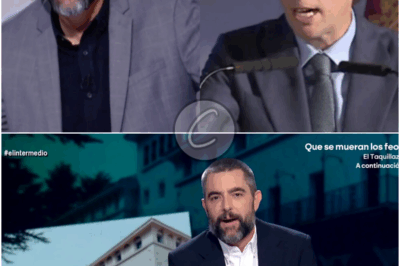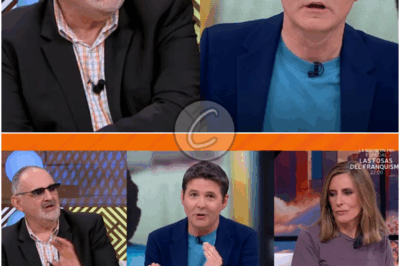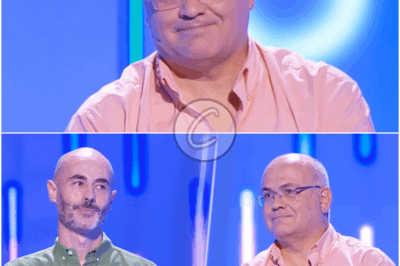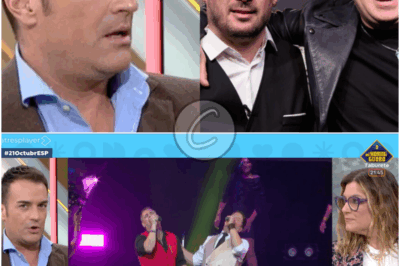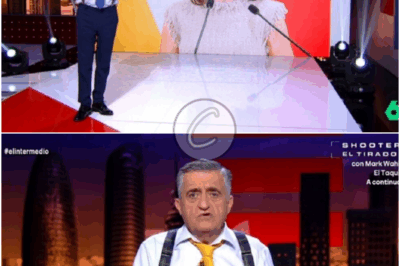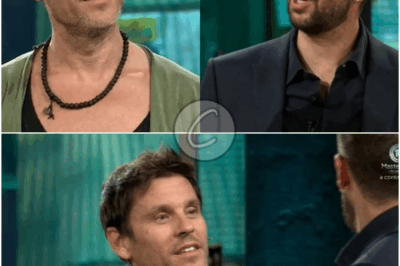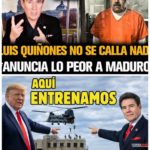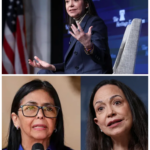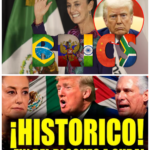He Stole a Boy’s Cap at the US Open – Now a Multi-Millionaire CEO Is Begging for Forgiveness

The incident that unfolded during Kamil Majchrzak’s match at the US Open has turned into one of the most talked-about controversies in recent weeks.
It wasn’t the tennis that captured headlines, but rather the shocking sight of a wealthy man snatching a souvenir cap meant for a young boy.
The man at the center of the storm, Piotr Szczerek, a multi-millionaire CEO known in business circles for his sharp instincts and global influence, quickly became a symbol of arrogance and entitlement.
The video of the moment spread rapidly across social media.
In it, spectators could clearly see the player intending to hand a cap to a boy near the stands.
As the child reached forward with eager anticipation, Szczerek stretched out his own hand and took the cap, leaving the boy visibly stunned.
Boos and jeers followed, and within hours, the clip was circulating worldwide.
The CEO who had once been admired in boardrooms was now facing an avalanche of criticism from ordinary fans who accused him of stealing joy from a child for the sake of pride.
For days, the silence from Szczerek’s camp only fueled speculation.
Commentators called it “a disgrace to the sport.”
Parents shared their anger online, describing how devastated they would be if their own children had been humiliated in such a way.
Rumors swirled about whether lawyers would get involved, whether the family of the boy would press charges, and whether this scandal would cost the businessman partnerships and sponsorships connected to his company.

Finally, in an unexpected move, Szczerek broke his silence with a lengthy statement published on his company’s official website.
It wasn’t a short apology crafted by a legal team.
Instead, it was a deeply personal and emotional message that attempted to explain, justify, and most importantly, ask for forgiveness.
“Due to the situation that occurred during Kamil Majchrzak’s match at the US Open, I would like to offer my sincere apology to the injured boy, his family, all the fans, and the player himself,” his statement began.
He went on to admit that he had made a grave mistake, describing how, in the middle of the excitement and celebration after the match, he truly believed the cap was being offered to him.
According to him, his sons had previously asked for autographs, and in that moment of emotion he instinctively reached out.
But what he thought was an innocent misunderstanding looked very different to everyone else.
“Today I know I did something that seemed like deliberately taking a souvenir from a child.
It wasn’t my intention, but that doesn’t change the fact that I hurt the boy and disappointed the fans,” Szczerek confessed.
He stressed that the cap had since been returned to its rightful owner, and that he had personally apologized to the family.
The statement also addressed another layer of the controversy.
Szczerek firmly denied that he, his wife, or his sons had posted anything about the incident online, nor had they hired any law firm to manage the fallout.
“All alleged statements appearing online are not ours,” he insisted, suggesting that false rumors had made an already difficult situation even worse.
For years, he reminded the public, he and his wife had been actively involved in charitable work, helping children and young athletes.
But he acknowledged how quickly one thoughtless act could erase years of good intentions.
“This situation has shown me that one moment of inattention can undo years of work and support.
This is a painful but necessary lesson in humility,” he wrote.
In perhaps the most striking part of his apology, the CEO pledged to turn the experience into something positive.
He vowed to become even more actively involved in initiatives supporting children and young people, and to dedicate himself to fighting against violence and hate.
“I believe that only through actions can I rebuild the trust I have lost,” he declared.
While some critics dismissed the apology as damage control, others saw genuine remorse in his words.
Fans debated fiercely on forums and social networks.
Some argued that returning the cap and saying sorry was enough, that everyone makes mistakes and deserves forgiveness.
Others remained unconvinced, claiming that a man of his influence should have known better than to take something from a child in front of thousands of witnesses.
What is certain is that the incident has left a permanent mark on Szczerek’s public image.
Where once he was known simply as a successful businessman, he is now remembered as the man who stole a child’s cap at the US Open.
Whether his charitable promises and public contrition can change that perception remains to be seen.
The young boy, whose stunned expression sparked worldwide outrage, has since been reunited with the souvenir.

According to reports, his family has accepted the apology privately, though they have declined to comment further.
Meanwhile, Kamil Majchrzak, the player at the center of the match, has continued to focus on his tennis, refusing to let the scandal overshadow his performance on the court.
For the millions who witnessed the moment online, the story is more than just a viral clip.
It is a reminder of how quickly reputations can be shattered, how small gestures can carry enormous meaning, and how humility is often learned through public mistakes.
As Szczerek himself admitted, “The pan I horne is not mine, it is of the people. I only put my hands… the rest is life.”
Though he borrowed those words from another context, their meaning resonates now more than ever: rebuilding trust takes time, action, and sincerity.
In the end, perhaps the most powerful lesson from this bizarre chapter at the US Open is not about tennis or business, but about dignity, forgiveness, and the fragile nature of human pride.
News
𝙀𝙡 𝙄𝙣𝙩𝙚𝙧𝙢𝙚𝙙𝙞𝙤
Dani Mateo alerta sobre el plan de Almeida de las aeronaves no tripuladas con este serio augurio en ‘El Intermedio’…
ℕ𝕠 𝕞𝕖 𝕙𝕒𝕘𝕒𝕤 𝕥𝕣𝕒𝕞𝕡𝕒𝕤
Antón Losada le para los pies a Jesús Cintora por lo que le pregunta en ‘Malas lenguas’: “No me hagas…
𝒐𝒓𝒊𝒈𝒆𝒏 𝒅𝒆𝒍
Quién es Eux, el origen del nuevo campeón de ‘Agárrate al sillón’ tras la expulsión de Héctor Alarcia Eux ha…
ℋ𝒶𝓎 𝓊𝓃 𝓁𝒾́ℴ 𝒹ℯ 𝒻𝒶𝓁𝒹𝒶𝓈
‘Espejo Público’ da un giro a lo de Andy y Lucas aireando un “audio demoledor”: “Hay un lío de faldas”…
ᴇsᴛᴇ ʜᴀᴄʜᴀᴢᴏ
El Gran Wyoming apunta a la cara de Ayuso en una pantalla gigante para darle este hachazo por el fin…
Fᴜᴇ ᴅᴜʀᴏ
Javián se sincera ante Broncano en ‘La Revuelta’ sobre el alto precio de participar en ‘OT’: “Fue duro” Javián visitó…
End of content
No more pages to load

